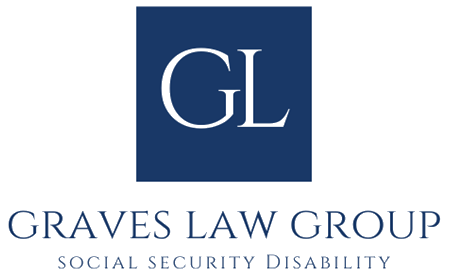Frequently Asked Questions
Let Us Get You The
BENEFITS YOU DESERVE
 Keeping You Informed
Keeping You Informed
You have questions?
We have answers.
Below are answers to frequently asked questions we receive in our practice.
Do I need a lawyer to file for Social Security disability?
You do not need a lawyer. You can fill out and submit the application on your own. But note that your chances of receiving benefits increases with assistance of a lawyer. A qualified Social Security disability attorney will make sure the application if properly filled out and that you submit the evidence necessary to have your claim for benefits properly evaluated.
Do I need to go to a Social Security office to apply for disability?
You do not. You can now apply online by clicking on the following link: https://www.ssa.gov/benefits/disability/
If you are unable to apply online, you can find the closest Social Security office near you with this link: https://secure.ssa.gov/ICON/main.jsp
Also, you can apply by phone by calling Call 1-800-772-1213 (TTY 1-800-325-0778) from 8:00 a.m. to 7:00 p.m., Monday through Friday.
What documents and information do I need to apply for Social Security disability?
The Social Security Administration created a checklist that lists all the information and documents you will need to complete your disability application. It can be found here: https://www.ssa.gov/benefits/disability/
Can I work after I am awarded benefits?
This is one of the most often asked questions we receive. And like most questions surrounding Social Security Disability benefits, the answer is always complicated. The Social Security Administration wants you to return to work if you can. So here is how they do it:
-
If you receive SSDI, you can return to work for a “trial work period” of nine months. Your benefits continue during that time no matter how much you make. However, if during a 60-month period there are nine months where you make more than $910, your trial period ends. After your trial period ends, you can remain in the workforce for another 36 months as long as your earnings are not “substantial.” The definition of “substantial” changes every year, but in 2020 the amount was $1260 of earnings per month.
- If you receive SSI, you can work until your wages plus other sources of income exceed the limits of income allowed to receive SSI benefits, which is currently approximately $783.
- Also remember that if you successfully return to work and your benefits stop , you have five years to request your benefits to start again without the need of filing a new application if your disability requires you to stop working again
Click here for additional information on this subject from the SSA: https://www.ssa.gov/pubs/EN-05-10095.pdf
Can a Veteran receive disability benefits from both Social Security and the Veterans Administration?
Yes. You can receive both VA benefits and Social Security disability benefits. But there are a couple things to remember. First, the criteria for receiving disability benefits under the VA differ from the criteria for receiving Social Security disability benefits. So, just because you receive VA benefits do not assume that you will also be approved for Social Security disability benefits. This is another reason why retaining a Social Security disability attorney is important. Second, which Social Security disability benefit you are receive can affect the amount of money you are allowed to receive from both the VA and Social Security Administration. If you are approved for SSDI benefits, you can receive both your VA benefits and Social Security disability benefits without any reduction. If you are approved for SSI benefits, the amount of the benefits you receive for Social Security and the VA cannot exceed the income limits for SSI, which is currently approximately $783.
If I am disabled for a period of time before I apply, can I get benefits for that time period?
Yes. You can get up to twelve months of benefits that predate your application date if the Social Security Administration determines that you were disabled during that time period. So for example, if you file your application for disability benefits in April of 2020 but the evidence shows that your disability actually started in April of 2019, you can receive benefits covering the period of April 2019 to April of 2020 even though you did not file your application until April of 2020.
If I have a terminal illness, do I have to wait years before I receive my benefits?
No. The Social Security administration speeds up the process for terminal illness, like late stage cancers, that clearly meet their standards for disability. This is referred to as “compassionate allowances.”
If I am currently disabled but expected to recover, can I still receive social security disability benefits?
Maybe. Social Security recognizes what is called a “closed period” benefit. To qualify for a closed period award, you need to be disabled and unable to work for a period of at least twelve months, and, with some exceptions, you must file for benefits within fourteen months after your disability ended.
What does the Social Security Administration look at to determine if I am disabled?
In making a decision on whether you are entitled to disability benefits, the Social Security Administration will look at the following factors:
- Are you currently working? If you are and make too much money (known as “substantial gainful activity”) you will not qualify for benefits. If you are not working or working but make less than “substantial gainful activity” you may be eligible for benefits.
- Is your medical condition severe? This is the complicated part that we tend to argue over the most with the Social Security Administration, but generally your medical condition must be severe enough to keep you from doing basic work activities and will continue to do so for a period of over twelve months.
- If your medical condition is severe, does it meet a listing? A listing essentially means that according to Social Security rules your injury is so severe that you are unable to perform any type of job regardless of age and past work history. Meeting a listing is very rare, but if a listing is met, the analysis ends here and you are deemed disabled.
- Are you able to do the work you did before? If your medical condition does not prevent you from doing your prior work, you will not be disabled. If your medical condition does not allow you to perform the work you used to do, there is still one more step to pass.
- Is there other work you can do based on your education, age, and experience despite the severity of your medical condition. If yes, you will not be considered disabled. If here is no other available work that you can perform, you will be deemed disabled.
This is the analysis the Social Security Administration goes through. At the hearing level the primary way we win cases is to argue that your medical condition is so severe that you cannot perform your past work experience or any other available jobs in the marketplace that you might be qualified to perform.
If Social Security determines I am disabled, do I also qualify for Medicare?
Yes. You will be eligible for Medicare. As a general rule, your Medicare benefits will start two years from the date you start receiving your disability benefits.
Can children under the age of 18 also receive Social Security Disability?
Yes. To qualify, the child must have one or more medial conditions that cause “marked or severe functional limitations.” In layman’s terms, that means the child’s medical conditions must be so bad that there are extreme limitations to what the child is able to do. Also, the medical conditions and limitations from them must be expected to last twelve months or be expected to lead to death.
A couple other quick points: since children receive SSI benefits, they are subject to earning limitations and the “compassionate allowance” rules also apply to children if their disease is one that is on the compassionate allowance list, which will speed up the process so they get their benefits sooner.
 Contact a Dallas Social Security Disability Lawyer
Contact a Dallas Social Security Disability Lawyer
By personally reviewing and managing each case and working tirelessly throughout the disability process, our attorneys offer clients the best possible chances at successful disability claims. Contact Graves Law Group today at (214) 321-6940 to work with a Dallas Social Security disability lawyer you can trust. We serve all areas in and around Dallas-Fort Worth, TX.

12700 Park Central Dr., Suite 520
Dallas, Texas 75251, USA
Complete Our 3-Step Evaluation to See if You Have a Claim
What is SSD?
What is SSI?
Am I Eligible?
Advice For Appealing
Dallas Office:
12700 Park Central Dr.
Suite 520
Dallas, TX 75251
Austin Office:
1301 South Capital of Texas Highway
Building A, Suite 136
Austin, TX 78746
